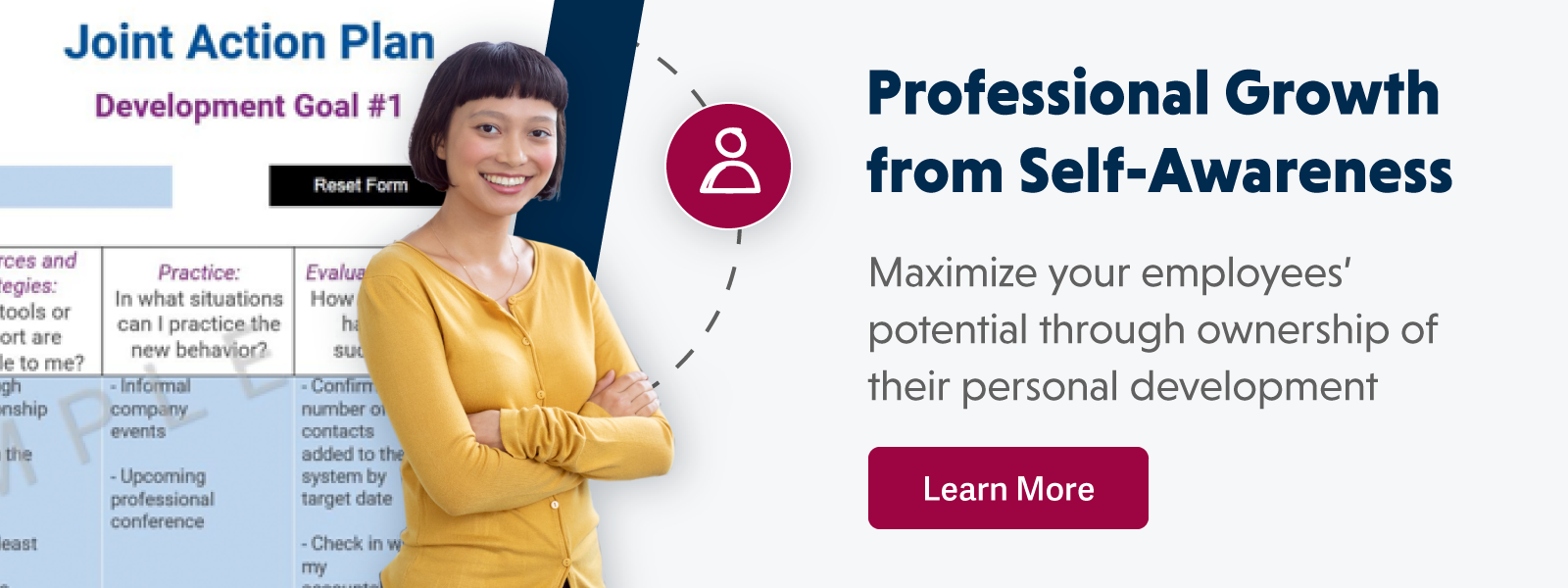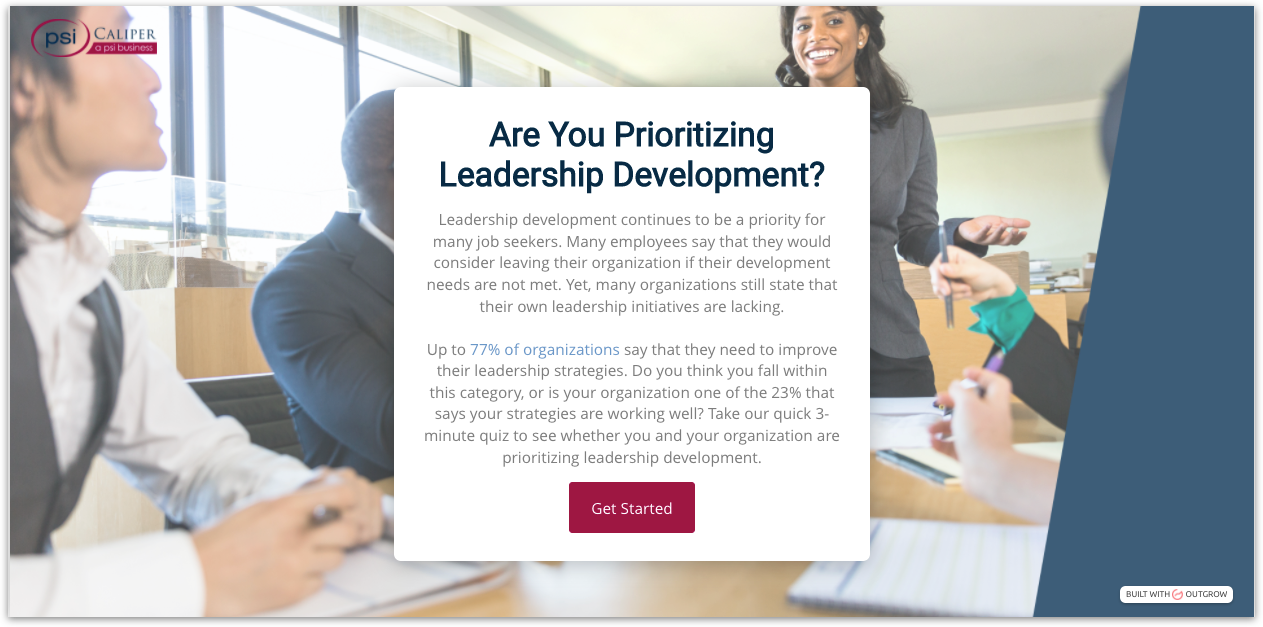The office environment can be a challenging place. You have to deal with all kinds of personalities at any given time, you see things that are broken but lack the resources or influence to fix them, and, often, people who don’t understand your work are there to tell you how to do it. But, we all just want to produce good results and receive acknowledgment for our effort. In an ideal world, you are in a role that plays to your strengths and motivations and limits exposure to your weaknesses, and you are partnered with a manager who serves as your advocate. In reality, you’re likely motivated by some aspects of your job and not always by others, and your manager has many other responsibilities that prevent them from being the best coach they can be to their team. In this scenario, the best you can do is do your best. And achieving your best requires a measure of self-management.
Hungry to learn more? Read the in-depth series here.
Motivation is often a set factor. In other words, you can’t choose what motivates you at work any more than you can choose your height or your family members. You can’t make yourself be outgoing if you’re shy, and you can’t spark competition if trophies don’t interest you. And the external factors that can stand between you and your goals—economic upheaval, competitive threats, disruptive changes, and mergers and acquisitions—aren’t something we can always plan for. You can, however, choose how you conduct yourself.
Organizations are always looking for employees who exhibit high potential and caliber for self-management. Focusing on the following six areas of self-management can help your company identify and nurture future leaders and lay a foundation for performance management and individual development.
1. Composure Under Pressure
Did you know one of the top job competencies for supervisory, sales, and customer-service positions is composure? Regardless of the power dynamic between employees and stakeholders, staying composed shows that they are in control. Staying calm earns respect, sets the tone, and increases others’ willingness to follow their lead. It’s contagious, in a good way.
Staying calm earns you respect, sets the tone, and increases others’ willingness to follow your lead. Read more about what @CaliperCorp has to say about #SelfManagement at work: Click To Tweet4 Ways to Keep Your Cool and Remain Composed:
- Remain visible – Allow your teammates to see you so they know you are in control and handling the situation.
- Respond decisively – Stand behind your decisions and encourage your team to take action, but don’t hesitate to ask for help when needed.
- Take accountability – Let your teammates know that you are accountable and committed to solving the issue and that you’ll do so in a timely, effective manner.
- Stay positive – Enable others to regain their composure by keeping your cool. The more relaxed and calm everyone is, the better the outcome will be.
Bonus Content: Learn more about Individual Development.
2. Self-Awareness
It’s important that employees consider the way they’re perceived by the people around them. They might be perfectly good at performing their work, but if their teammates only experience their loud personal phone calls that echo through the building, oblivious comments that insult other team members, and tiresome questioning of others’ statements, it’s going to be difficult to put that person into a place of leadership. A self-aware employee monitors reactions and considers how their words and actions affect everyone else.
How to be more self-aware:
- Ask for honest feedback – Don’t argue with or deflect what you hear.
- Take a personality assessment – Gather insights on your personality and work-specific competencies to help you understand your own proficiencies and deficiencies.
- Reflect – Think back on your daily interactions and how you handled situations well or could have handled them differently.
Bonus Content: Learn more about Composure and Self-Awareness.
3. Open to Change
Technology changes fast, as do consumer preferences, company processes, and market trends. It’s inevitable that companies have to revise systems, strategies, and policies. Refusing to adapt and showing resentment toward change are sure ways to be labeled as stubborn or stagnant.
How to show you’re adaptable:
- Ask questions – Start preparing yourself early for new changes, and help others transition as seamlessly as possible.
- Update your understanding – Stay current with best practices and read up when new information comes to light.
- Volunteer to be part of the solution – Is there a steering committee or a team leading the changes? Get involved!
4. Professionalism
Professionalism is about maintaining integrity when executing your responsibilities, respecting people at all levels of the organization (as well as customers and vendors), and embracing the ethics and best practices of the profession. In fact, openly expressing a personal philosophy of professionalism in a job interview can make a favorable impression on a prospective employer.
@CaliperCorp has the 6 components of #self-management at work to help you be the best #leader possible. Check them out: Click To TweetHow to demonstrate professionalism in the workplace:
- Show up to work on time
- Stay positive and redirect negativity
- Offer assistance to your co-workers
- Own up to your mistakes
- Leave a bad mood at the door
- Avoid swearing or using inappropriate language
Bonus Content: Learn more about Adaptability and Professionalism
5. Ownership of Work
No matter where they stand on the organizational chart, an employee with good self-management makes tasks their own and delivers on their promises. They accept both praise and criticism gracefully, and don’t pass the blame for setbacks or are grateful for help when working on a team.
How to own your work and set an example for others:
- Hold Yourself and Employees Accountable – Accountability is the belief that we have control over most situations and outcomes in our everyday lives, regardless of the situation or how fair it seems. What does true accountability look like in your team? Define this and be open to any feedback from your team.
- Be in Control of Your Own Fear – Fearful of failure? Write down your concerns, and how much of that fear you have the ability to impact. Chances are you are in control of a lot of those failures because you choose your own fear. Own that fear, and it’ll help you get ahead and make you that much better of a leader.
- Start with the End Goal in Mind – What is the end goal you need to accomplish? Discover it, define it, and don’t try to alter it if it hasn’t been achieved. This will help you stay on track when you start to slip, and what it might look like getting back on course.
6. A Focus on Learning
Everyone likes to be the expert and to feel confident in their skills, but if there’s a recurring theme for the 21st-century business world, it’s “change.” To stay viable and valuable, it helps to keep an open mind, look for cross-training opportunities, and show an eagerness to gather insight and expertise from the people around you. This goes for senior managers, too. New hires just out of college or trade school have been exposed to methods and philosophies you haven’t thought of. Being open to new ideas doesn’t undercut your authority—it strengthens your authority.
Bonus Content: Learn more about Ownership of Work and Focusing on Learning
The Caliper Precision Series and Individual Developmental Guide can help you identify and develop your self-aware employees into leaders who focus on personal growth, success, and continued learning within their teams. For more information on the ways Caliper can help you build the teams you need to accomplish your employee development goals or how to coach your teams, reach out to our experts today and get started.


